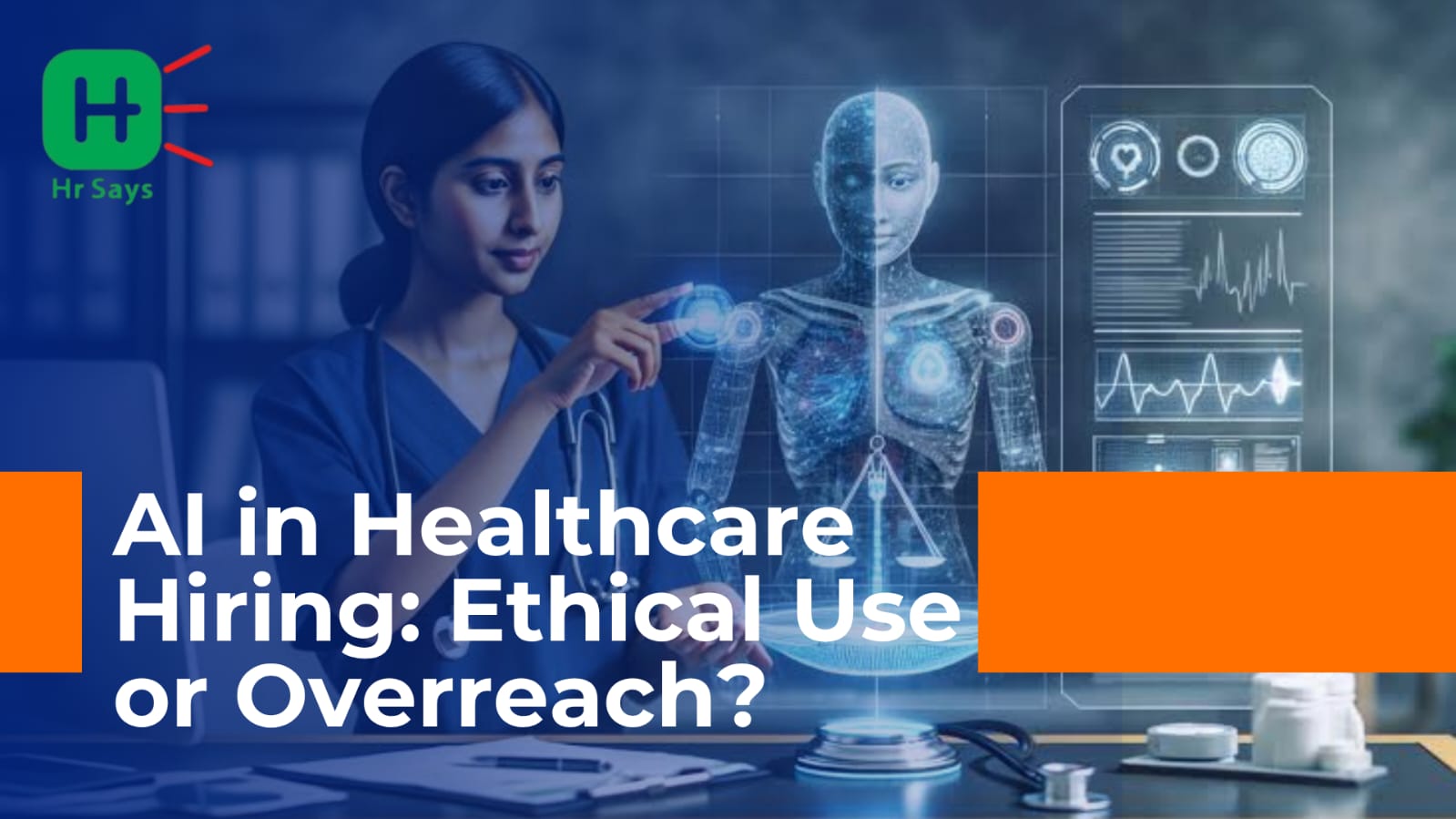Can a machine choose your next surgeon? That question isn’t science fiction anymore. Hospitals are turning to AI tools to speed up hiring. Efficiency is rising. But so are concerns. Are we solving staffing issues—or creating new ethical ones?
Why AI Is Being Used in Hiring
Healthcare hiring is complex. It’s not just about skills. It’s about trust, empathy, and judgment. But the shortage of skilled professionals is real. Hiring is slow. Delays cost lives.
So, hospitals are turning to:
● SaaS in Healthcare
● Medical Software for resume screening
● Healthcare Automation to match roles with candidates
● AI in Healthcare to rank applicants
The benefits are clear:
● Faster processing
● Reduced human bias (ideally)
● Data-backed decisions
● Round-the-clock shortlisting
Time saved is life saved.
But There’s a Catch
Algorithms are trained on data. Healthcare Data Analytics can be sharp—but also flawed. Bias in, bias out.
What gets missed?
● Non-traditional qualifications
● Diverse backgrounds
● Human warmth that doesn’t fit metrics
Also, not all AI is built equally. EHR integration might boost medical workflows. But recruitment
needs emotional intelligence, not just machine logic.
There’s also the issue of:
● Cybersecurity in Healthcare: Sensitive hiring data needs protection. Leaks could mean
legal risks.
● Interoperability in Healthcare: Can all departments trust the same AI? Or will each build
its own, fragmenting the system further?
Not every problem has a code fix.
Digital Transformation in Hospitals: A Double-Edged Sword
Yes, digitization is needed. Paper trails slow things down. Healthcare Cloud Solutions offer
agility. They allow centralized hiring databases. They support remote interviews and real-time
updates.
But where is the ethical line?
Should AI:
● Screen resumes? Maybe.
● Conduct first interviews? Risky.
● Decide who gets hired? Dangerous.
Hiring is about people. Automation can support—but not replace—human decision-making.
And yet, many hospitals already rely heavily on AI-based tools without strong regulation. In
fast-moving systems, ethics often trail behind efficiency.
A Future Built on Balance
So, is this overreach? Not yet. But the potential exists.
The solution?
● Transparent algorithms
● Human-in-the-loop decisions
● Regular audits
● Staff training on tool limitations
● Clear opt-in/opt-out rules for candidates
AI should enhance, not replace. Empathy isn’t programmable. Hiring in healthcare isn’t about filling roles—it’s about saving lives.
Conclusion
AI can streamline healthcare hiring. But it should not be allowed to dominate it. Hospitals are not factories. People matter. Nuance matters.
Ethics must lead, not follow. Only then will digital transformation in hospitals mean progress—not problems.

 AI is entering hospital hiring rooms—not just operating ones. Used right, it can transform recruitment. But what happens when automation replaces human instinct? The line between help and overreach is getting blurry.
AI is entering hospital hiring rooms—not just operating ones. Used right, it can transform recruitment. But what happens when automation replaces human instinct? The line between help and overreach is getting blurry.








.jpeg)
.jpeg)

.jpeg)





.jpeg)



.jpeg)

.jpeg)



